The event brought together over 60 stakeholders from the swimming community in Europe.
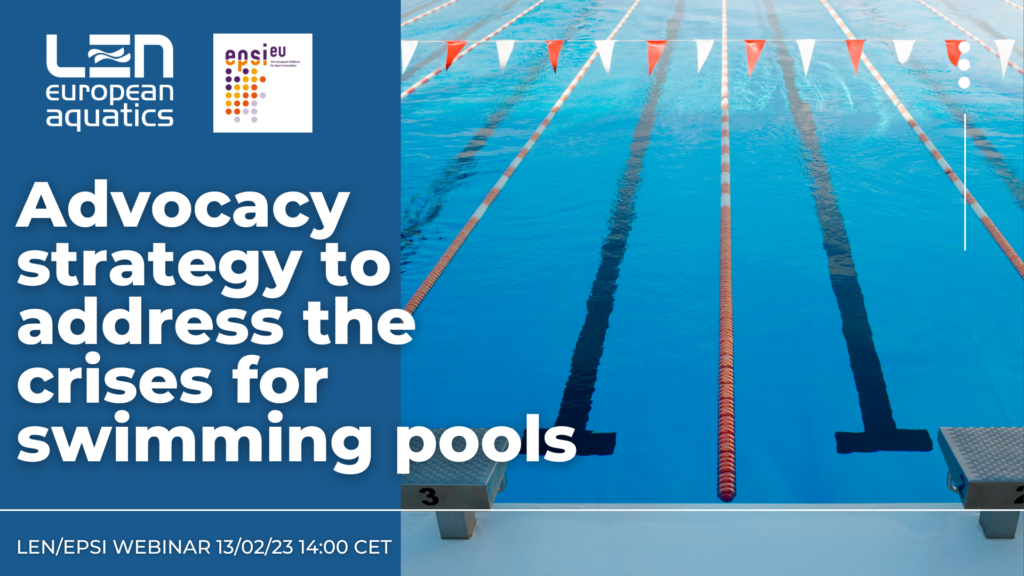
On the 13th of February LEN and EPSI organized a joint webinar to address the important issues of possible swimming pool closings across Europe due to the high energy prices on the continent. The event was for LEN and EPSI members.
The event brought together more than 60 stakeholders from the swimming sports ecosystem of Europe. The meeting began with an opening speech from Antonio Silva, president of LEN who outlined the importance of providing the citizens of Europe to have access to swimming as a sport. Something that impacts millions of Europeans across the continent. He also thanked EPSI as an organizing partner and everyone participating.
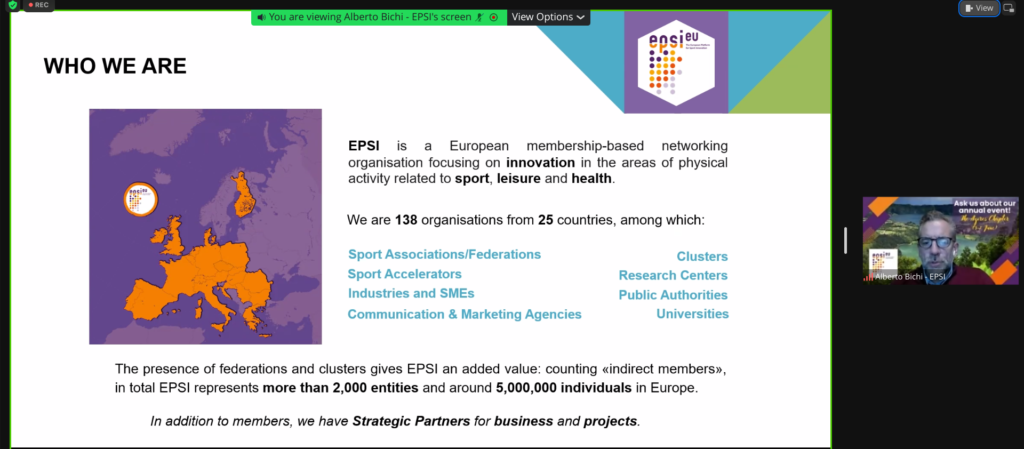
After that Alberto Bichi, executive director of EPSI spoke about how this issue is relevant to sports innovation and presented the network. Next Brent Nowicki from World Aquatics outlined how swimming is not only essential as a sport and a life skill and confirmed their support for finding solutions that would allow public pools to remain open despite the increasing energy prices.
Merry McMorrow, director of operations at Swim Ireland presented the results of a federation survey that LEN conducted among swimming federations that showed almost 50% of federations have not been supported financially to tackle the issues related to the energy crises. 94% of all federations are concerned about the future of aquatic sports in their countries. Then she mentioned some media headlines that outlined the closure of swimming pools and swimming sports clubs. And all of this is impacting young’s people chances to learn how to swim. She also referenced the increased number of drownings that have been increasing since the start of the Covid-19 pandemic and the numbers keep getting bigger.
Next on the agenda was Juanjo Gomez, marketing manager of Fluidra. He said how energy prices are becoming an increasing challenge in the industry and how they try to adapt their products and services to the current market needs. He gave some examples of how swimming pools can become more sustainable like changing the heating, lighting, pumping, and filtration systems.
Rene Wijlens, executive director of EPSI and Cluster of Sport and Technology presented some existing solutions among EPSI members in Finland, Spain, and the Netherlands. He referenced the program of sustainable sports facilities that EPSI established in 2021 and showcased relevant projects that are already addressing the issue.
Next, Joseph Bin Sun from Warrant Hub presented the LIFE program and referenced how it can be used to fund innovative projects that offer solutions to the swimming pool crisis originating from the high energy prices. After that Pedro Moroso from the Portugal Swimming Federation presented a current project proposal they are working on (along with EPSI) that aims to increase physical activity through wearable devices.
The webinar continued with the presentation of Rainer Braun, managing partner of Aquarena, a company manufacturing water slides for pools for more than 40 years. He presented the energy savings potential that indoor swimming pools in countries with cold weather. He outlined what are the main area where energy savings for swimming pools can be made – ventilation. Then he gave examples of how renovating buildings, reducing working hours, and introducing technology can reduce energy costs.
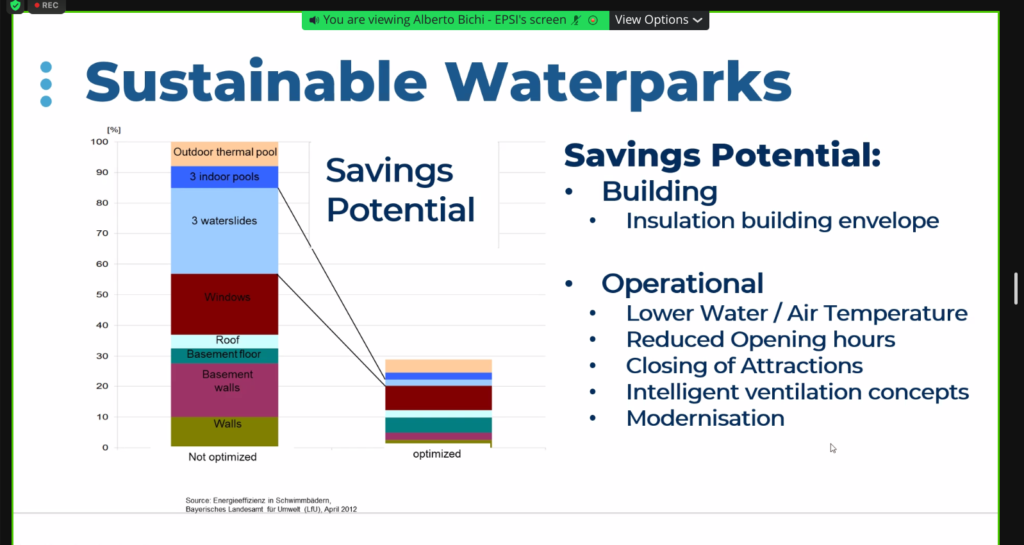
Next on the agenda was Nathalie Valde Velde from DG Energy, and EU Energy Platform. She talked about the REPowerEU initiative and what the European Commission is doing in the context of the energy crisis.
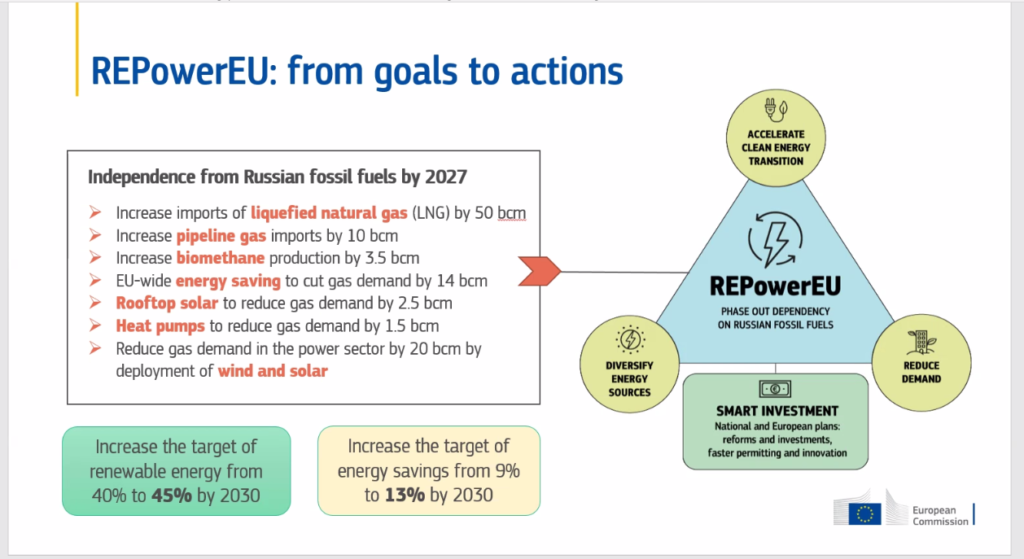
After that, an example from the Netherlands was given by Hayke Veldman, the president of the Royal Dutch Swimming Federation. He said was done in the country to help swimming pools with the crisis. They introduced a position paper to the government dedicated to sustainability and adjust the subsidies of sustainabilities. They worked together with several associations, federations, and pool operators in the country to push forward. If no actions were taken 200 out of 600 pools in the Netherlands would have been closed. The second position paper to the government was related more to the closing of sports infrastructure and asked for dedicated investments and financial support for swimming pool operators. As a result, they have unlocked 207 million EUR in additional funding.
Then Alberto Bichi, executive director of EPSI took the floor to summarize all the key findings of the event for now and gave some concrete tips on lobbying from his experience.
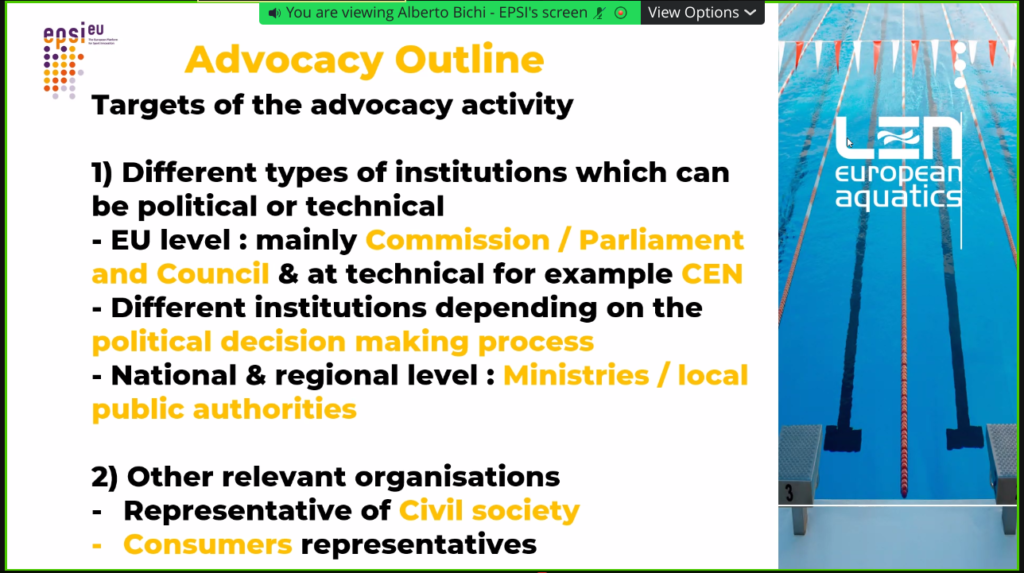
The webinar was closed by a speech by Antonio Silva, the president of LEN. He said that LEN and EPSI and other stakeholders will work on concrete follow-up steps that would follow after the webinar.
